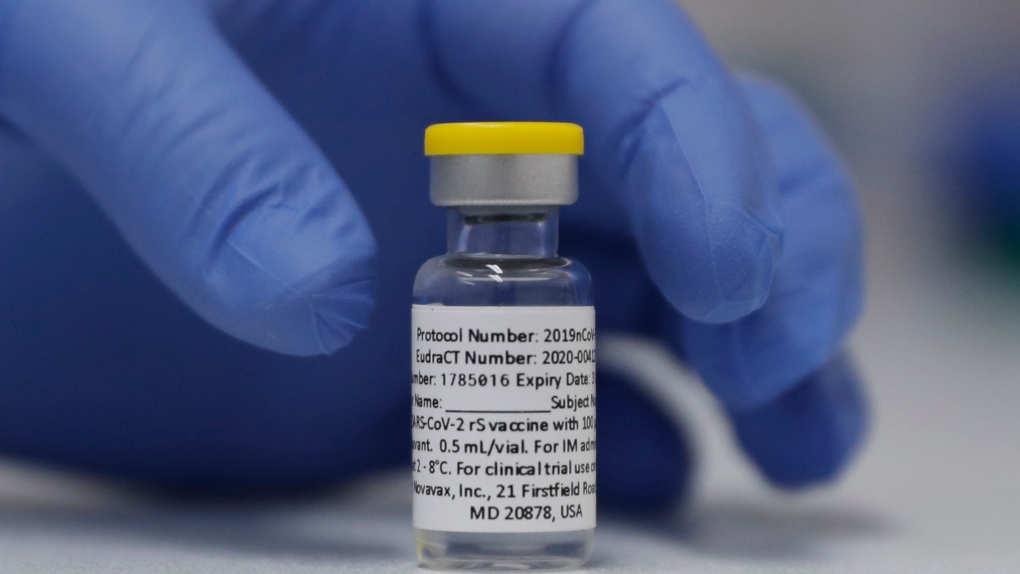Why domestic vaccine production across Canada is key to controlling another pandemic

The former dean of medicine at McGill University says Canadians should not forget about the shortage of vaccines the country faced during a very difficult moment in the COVID-19 pandemic.
“We like to forget things that have happened that are difficult,” Dr. Abe Fuks told CTV News Toronto.
“So when there’s a pandemic, at a societal level, or when someone has been ill, at an individual level, we like to get on with our life afterwards and forget the bad times.”
It’s a phenomenon Fuks describes as “social amnesia” and something he said needs to be avoided before another pandemic hits.
“In the midst of a pandemic, or a volcanic eruption, is not the time to plan for the future. We owe it to ourselves and certainly the next generation to avoid a catastrophe, we need to plan now,” he said.
Fuks’ comments come as Canada prepares to enter the third year of COVID-19, with at least 82.52 per cent of the population over the age of 5 considered to be fully vaccinated.
Although Canada’s vaccination rate is considered high now, the initial rollout of doses across the country in early 2021 was plagued by delays in shipments from countries that produce vaccines on their own soil.
“You may not get supplies if others are needy in the countries of manufacturers,” explains Earl Brown, a professor emeritus of virology at the University of Ottawa. “You have to have domestic production.”
Canadians have become increasingly familiar with the pharmaceutical giants Pfizer, Moderna, and AstraZeneca over the last 22 months, but there was a time when Canada was considered a powerhouse in mass vaccine production through the work of Connaught Labs in Toronto and Institut Armand Frappier in Montreal.
Brown believes that in recent decades people got complacent and stopped thinking strongly about vaccines and their benefit in the face of a major health-care crisis.
“So you had a model where it was hard to make money in vaccines and you have a big contraction in the 70s and 80s,” Brown explained. That led to the eventual sale of Connaught and Frappier to pharmaceutical companies in France and the U.K, respectively.
In an effort to regain Canada’s former vaccine production horsepower, the federal government has invested $1.3 billion in 29 COVID-19 domestic biomanufacturing, vaccines and therapeutics projects -- nine of which are in Ontario.
That money includes $126 million for the construction of the Biologics Manufacturing Centre in Montreal, a facility that will be able to produce roughly two million doses of the Maryland-based Novavax vaccine every month.
The facility is not yet operational and the vaccine is awaiting approval by Health Canada, which is expected to rule on its use in fighting COVID-19 in the coming weeks.

But investments being made now in domestic vaccine production are a step in the right direction, said Fuks, and can prepare us before the next pandemic arrives in Canada and “social amnesia” sets in.
“We often forget, we think its over with, we’re okay now,” Fuks said. “And sadly, with every crisis, we forget, and pray there won’t be a next one. Now it’s fine to pray, but you have to get ready.”
With files from Rahim Ladhani
CTVNews.ca Top Stories

Stormy Daniels describes meeting Trump during occasionally graphic testimony in hush money trial
Stormy Daniels took the witness stand Tuesday at Donald Trump's hush money trial, describing for jurors a sexual encounter the porn actor says she had with him in 2006 that resulted in her being paid off to keep silent during the presidential race 10 years later.
Former homicide detective explains how police will investigate shooting outside Drake's Bridle Path mansion
Footage from dozens of security cameras in the area of Drake’s Bridle Path mansion could be the key to identifying the suspect responsible for shooting and seriously injuring a security guard outside the rapper’s sprawling home early Tuesday morning, a former Toronto homicide detective says.
Jeremy Skibicki has 'uphill battle' to prove he's not criminally responsible in Winnipeg killings: legal analysts
Accused killer Jeremy Skibicki could have a challenging time convincing a judge that he is not criminally responsible for the deaths of four Indigenous women, a legal analyst says.
Bye-bye bag fee: Calgary repeals single-use bylaw
A Calgary bylaw requiring businesses to charge a minimum bag fee and only provide single-use items when requested has officially been tossed.
Air France flight from Paris to Seattle lands in Iqaluit after heat smell in cabin
A plane travelling from Paris to Seattle was forced to make an emergency landing in Iqaluit after there was a heat smell in the cabin during the flight.
CFL suspends Argos QB Chad Kelly at least nine games following investigation
The CFL suspended Toronto Argonauts quarterback Chad Kelly for at least nine regular-season games Tuesday following its investigation into a lawsuit filed by a former strength-and-conditioning coach against both the player and club.
Boy Scouts of America changing name for first time in 114 years, aiming for inclusivity
The Boy Scouts of America is changing its name for the first time in its 114-year history and will become Scouting America. It's a significant shift as the organization emerges from bankruptcy following a flood of sexual abuse claims and seeks to focus on inclusion.
RCMP not investigating possible foreign interference cases related to Chiu, Dong: Duheme
Canada's federal police force is not investigating any possible instances of foreign interference in the cases of former Conservative MP Kenny Chiu and Liberal-turned-Independent MP Han Dong, RCMP Commissioner Mike Duheme says.
Federal government grants B.C.'s request to recriminalize hard drugs in public spaces
The federal government is granting British Columbia's request to recriminalize hard drugs in public spaces, nearly two weeks after the province asked to end its pilot project early over concerns of public drug use.
































